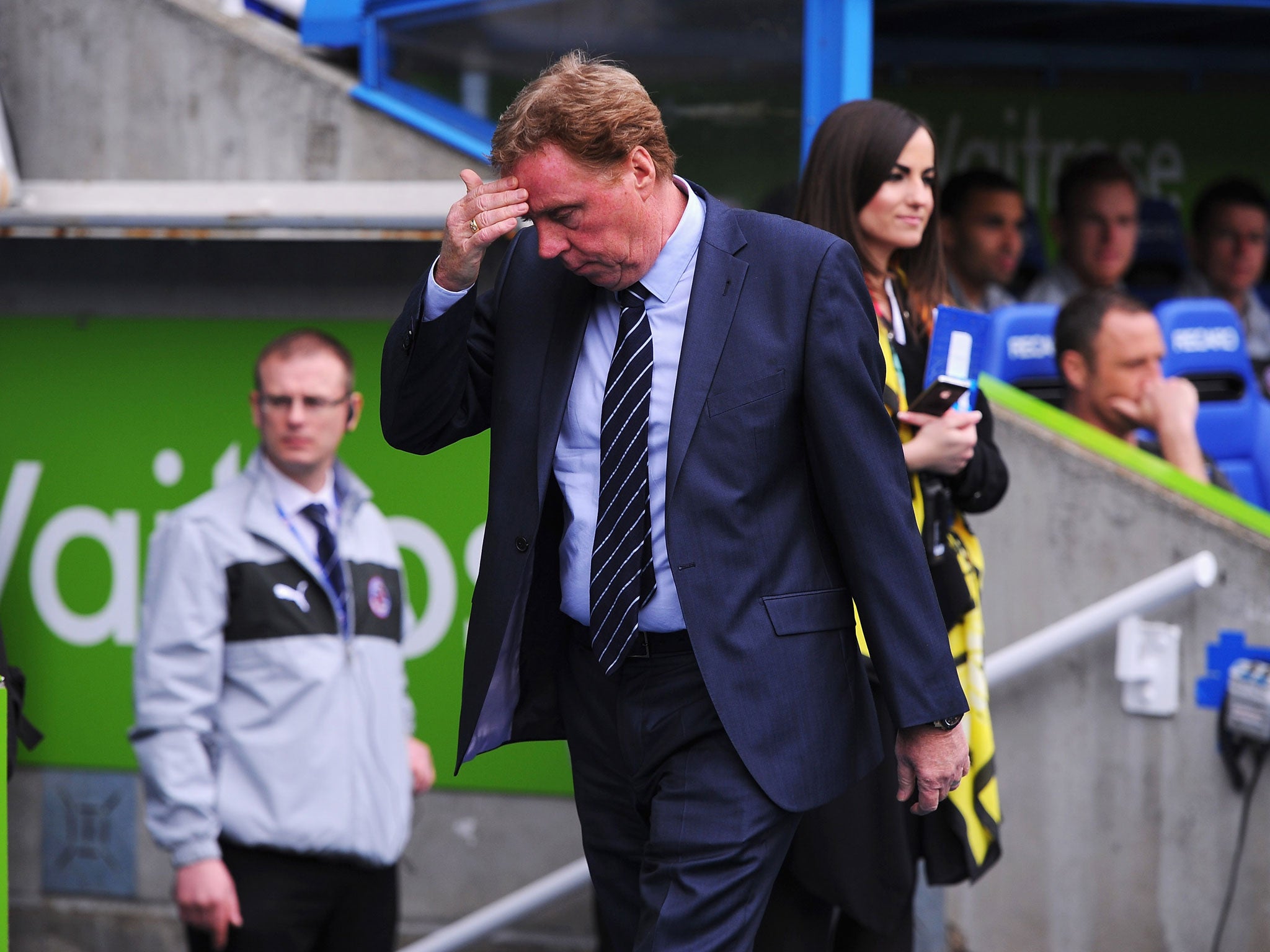How the fall of QPR restored my faith in football
It may sound wimpishly at odds with the spirit of the game, but I have discovered that I would prefer to support a team owned by someone I can respect

Following a football team as it is relegated from the top division of the game is one of the more miserable experiences which sport can offer. A defeat, a disappointing performance, leaves hope; being kicked out of the great champagne party of the Premiership to join the great, beery mob outside trying to get in, brings with it a more long-term despair. The sharp present pain leaves an after-ache which could last for years.
It is a slow fall, too. Every game from January onwards feels like the key moment of the season, and with every point dropped, the unthinkable becomes more possible, then more likely, then inevitable. I vividly remember the last time my team, Queens Park Rangers, were dumped from the Premiership in 1996. By rights, this debacle should feel even worse. There was so much hope: a chairman who invested in the club, a manager with a record of success (Harry Redknapp, pictured), players of class and pedigree.
All turned out to be a false dawn. The Rs, as they are known, are down and out – rich, ridiculed and relegated. Yet, to my surprise, the slow-motion crash of this season has restored my enthusiasm for football. The sneering pundit may have seen in QPR the unacceptable face of the game, with sky-high investment and overpaid, less than committed international players, all leading to disaster, but there has been a decency and dignity at the top of the management chain which seem more important than all that.
Sporting wisdom suggests that the soul of a club is its supporters, then the manager and the players; but in truth it is the chairman who defines its character, as surely as a head teacher does a school, or a proprietor a newspaper. Tony Fernandes, a Malaysian billionaire of whom I had previously never heard, has – unusually for a chairman of a football club – behaved like a grown-up. He may have made misjudgements, attempting to do too much too soon, hiring the wrong manager at a key moment, but he has faced his critics, shown loyalty to those he appointed, and respected fans, sometimes in the face of unpleasant abuse.
It is surprisingly rare, and it matters. My club has been owned by a grotesque galère of opportunists in recent years. One chairman was a sulking egotist who left when supporters loved him less than he expected. Other owners seemed in it solely for the money, their chief executive cheerfully admitting that they would buy a rival club if the terms were right, just as a farmer might buy some new land. Then there was the chairman who humiliated his managers, and a part-owner who took pride in not knowing the names of the players.
None of these men were people I would like to know personally – indeed they represent all that I like least in the business world – and yet I was shackled to them by my support of the club they owned. It was a nasty feeling, like supporting an evil regime.
It may sound wimpishly at odds with the spirit of the game, but I have discovered that I would prefer to support a team owned by someone I can respect, even if it is not in the top division. Lord Ouseley was right to comment on the nastiness unique to football, and people like Fernandes are needed to set the tone from the top.
Undeniably the past year has been rich in disaster: a high-profile player who lost his temper, another refusing to sit on the bench, a third this very day apparently requesting a transfer through the public forum of Twitter, defeats, deflections, bad luck. When things go wrong, most owners of football clubs whinge to the press, or fire employees, or turn on the fans, or look for a buyer. The fact that the chairman of my club has behaved throughout with straightforward, old-fashioned directness has reminded us why football can be a great game, and gives me hope that QPR will soon be back at the great Premiership party.
Burchill: right for the times
There are so few laughs around these days that the mere sight of the words “Julie Burchill” in a newspaper is enough to bring a fond, gentle smile to the face. Rather as Auberon Waugh was in the 1980s, Burchill has become a sort of alternative national treasure, an ever-reliable repository of irresponsible jokes and opinions.
This weekend Burchill was to be found staggering around Brighton, boozing and abusing all and sundry as part of a profile by The Sunday Times’s Camilla Long. In spite of her claim to be overseeing her “managed decline”, she shows few signs of mellowing. More or less out of work, she admits to not being clever (although “compared to your average f****** columnist, I’m super-f****** clever”) and to having been sacked wherever she has worked, even Punch. “You don’t know true embarrassment until you’ve been fired by Punch.”
She has plans to be buried on the Mount of Olives, close to Robert Maxwell “but no tongues”. Not too soon, one hopes. At the dawning of a new age of prissiness, we need this ridiculous, impossible woman more than ever.

Join our commenting forum
Join thought-provoking conversations, follow other Independent readers and see their replies